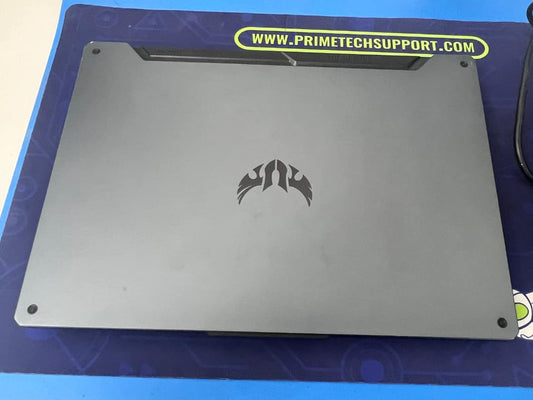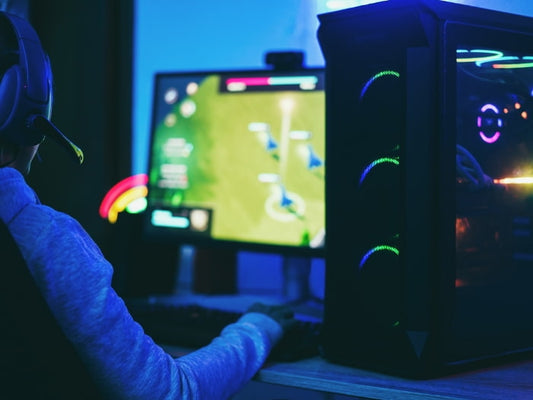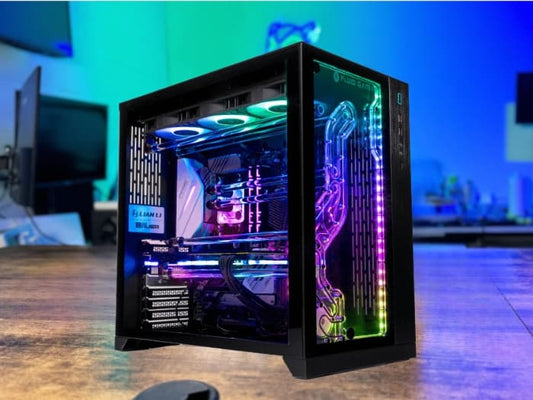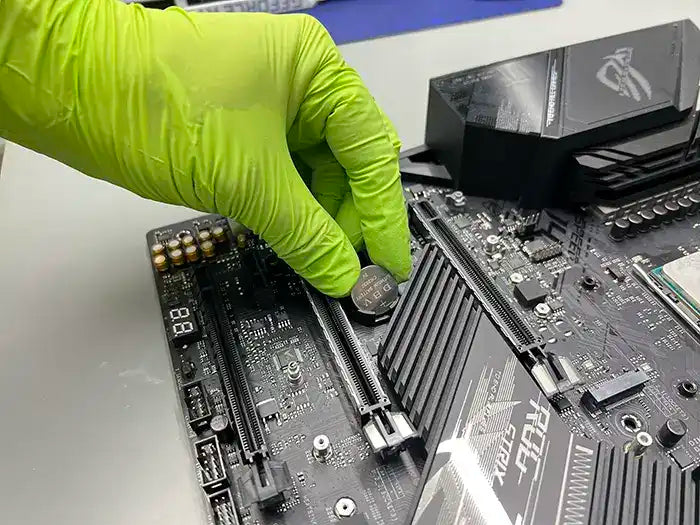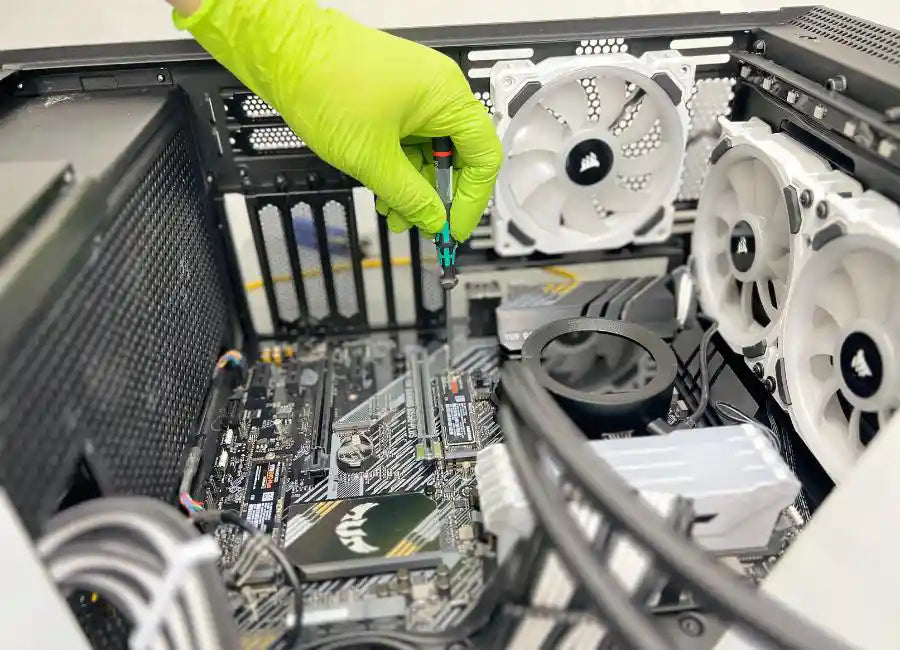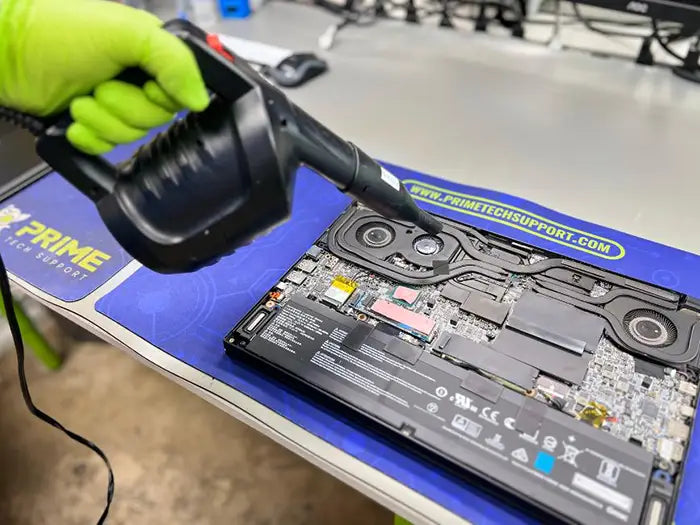Intel’s 14th Gen: The Disappointment
Who Is This Article For?
Beginners: This article offers basic guidance in simple terms for those new to PCs.
Table of Contents
Performance Analysis: The Generational Stalemate
Price-to-Performance Ratio: Is the 14th Gen Worth the Investment?
The Consumer Perspective: What Does This Mean for Upgraders?
Today, we're exploring a comparative analysis between Intel's 13th and 14th Gen processors, focusing on the Intel i7-14700K. This CPU is a part of Intel's 14th Series, which includes models like the 14 600k, 14900 K, and 14700 K. The 14700 K is particularly noteworthy as it represents Intel's latest effort in the ongoing evolution from the 13th Series.
While the 14th Series CPUs, including the 14 600k, 14900 K, and 14700 K, maintain a design continuity with their predecessors, it's their performance enhancements that mark a step forward. Intel's launch of the 14th Series aims to elevate its competitive edge. The 14700 K is especially significant as it exhibits notable differences from the 13th Gen, particularly in terms of core count and performance capabilities.
The 14th Series seems to reflect Intel's strategy to stay relevant in the market, responding to competition and evolving consumer demands. Despite the generational naming, the 14th Series, including the 14700K, represents more of an evolutionary step rather than a complete generational leap from the 13th Series.
Click here to Understand AMD & Intel's Nomenclature
The Raptor Lake Refresh , as seen in the 14th Series, builds upon the 13th Series, with compatibility extending to Z790 and potentially Z690 motherboards. Key upgrades include slight clock speed increases and, most notably for the 14700K, a shift in core configuration from an 8p core 8e core 24 thread to an 8p core 12e core 28 thread layout. Despite these enhancements, the max turbo frequency remains capped at 5.6 GHz, continuing the TDP trend of its predecessor.
Intel's challenge with the 14th Series lies in its market positioning and pricing. The 14700K, priced around $440, and the 14700KF, at about $445, face stiff competition from more priced models in both the 13th Gen lineup and AMD’s offerings.
Performance Analysis: The Generational Stalemate
Intel's release of their 14th Gen processor, particularly the i7-14700K, has been met with mixed reactions, primarily due to its performance in comparison to its predecessor, the 13th Gen i7 processors. This 300-word analysis delves into the key aspects of this comparison, focusing on performance, thermal efficiency, value proposition, and implications for consumers considering an upgrade.
Performance-wise, the 14th Gen i7-14700K represents only incremental improvements over the 13th Gen. While there are enhancements, they are not as substantial as one might expect from a generational leap. In benchmark tests and real-world applications, the 14th Gen processor shows modest gains in processing speed and efficiency.
Get to know the best Gaming CPUs in 2023: Top Picks for Elite Performance
However, these improvements don’t translate into a significant leap forward, particularly for users already equipped with the 13th Gen CPUs.
The performance test of Intel's 14th Gen processors, as per metrics and data presented by UserBenchmark.com, offers a comprehensive look into how these CPUs stack up in terms of real-world usage and benchmarks.
Focusing on key metrics such as single-core and multi-core performance, computational speed, and overall efficiency, these tests provide valuable insights into the capabilities of the 14th Gen series, particularly in comparison to previous generations.
In single-core performance, which is crucial for tasks such as gaming and certain types of software applications, the 14th Gen shows a modest improvement. This is reflective of Intel's continued efforts to optimize per-core efficiency, a critical factor for certain types of computing tasks.
Multi-core performance, essential for more demanding workloads like video editing, 3D rendering, and other professional-grade applications, also sees an uptick in the 14th Gen processors. According to UserBenchmark.com, these improvements are noticeable but not as substantial as one might expect from a full generational leap.
Another important aspect covered in the performance tests is computational speed, where the 14th Gen processors demonstrate enhanced capabilities, particularly in handling complex tasks more efficiently. This is complemented by metrics on overall system efficiency, where the new CPUs aim to balance power consumption with performance output.
Thermal efficiency and power consumption are critical factors in the comparison. The 14th Gen processor, while slightly more efficient, still presents challenges in terms of heat output and energy usage, especially under heavy loads. This aspect is crucial for users who prioritize energy efficiency and system stability, especially in overclocking scenarios.
From a value perspective, the i7-14700K's pricing has raised questions, especially when considering the performance-to-cost ratio. With the advancements offered being marginal, the processor's value for money, particularly for those already owning a 13th Gen CPU, is debatable. Potential buyers might find it difficult to justify the investment, considering the minimal performance improvements.
For consumers considering an upgrade, the decision becomes complex. For those using older Intel generations or competing products, the 14th Gen could be a worthwhile upgrade. However, for current 13th Gen users, the benefits of switching to the 14th Gen are less clear. The marginal performance gains may not warrant the additional expense and effort required for an upgrade.
Price-to-Performance Ratio: Is the 14th Gen Worth the Investment?
In the case of the comparison between the 13700k vs 14700k the later has a mark up of 16% and offers only about 4% performance increase.
When delving into computer hardware, especially for those new to the field, the concept of sample size often emerges as a point of curiosity and concern. A common question arises regarding the reliability and representativeness of CPU performance data, particularly when the sample size might appear limited.
To address these concerns, Gamer Nexus conducted an extensive study involving 68 CPUs. This comprehensive analysis aimed to determine the variance in performance from one unit to another. The findings from this investigation are crucial, especially for those seeking a deeper understanding of hardware performance metrics.
Gamer Nexus results revealed that the variance in CPU performance is generally contained within a narrow range of 1 to 2% from unit to unit. This insight is significant as it underscores the consistency in CPU manufacturing and performance, even across numerous samples.
Thermals: A Closer Look
The thermal analysis of Intel's 14th Gen, particularly the i7-14700K, highlights several key aspects related to power consumption and efficiency. Over a decade of data on the Intel i7 series shows that the 14700K stands out as a notably power-intensive CPU, comparable in this regard to its predecessor, the 13700K. It ranks among the most power-hungry processors in the i7 series, underscoring the importance of high-end cooling solutions.
Discover the 2023's Top Gaming Monitors
A detailed comparative analysis of energy consumption, especially in tasks like rendering, places the 14700K in a less favorable position in terms of power efficiency. It falls behind in efficiency compared to competitors like AMD's 7950x and 7700x, which are recognized for their superior power efficiency. This comparison sheds light on the growing need for processors that can deliver high performance while maintaining efficient energy usage.
The 14700K exemplifies a common challenge faced by modern CPUs: achieving a balance between delivering high performance and maintaining energy efficiency. This balance is crucial not only for reducing electricity costs but also for minimizing the environmental impact. Furthermore, efficient power management is key to ensuring the longevity and reliability of the hardware, a critical consideration for both personal and professional computing needs.
The Consumer Perspective: What Does This Mean for Upgraders?
Intel’s 14th Gen, priced approximately 16% higher than its 13th Gen counterpart, offers a performance increase of just about 4%. This marginal improvement is a pivotal aspect for potential buyers, especially those considering financial efficiency alongside technological advancements.
For users already equipped with the 13th Gen, this modest performance boost of the 14th Gen might not translate into a noticeable difference in everyday computing tasks or even in more demanding applications. This is particularly relevant for professional workloads or gaming where cost efficiency and optimal performance are key considerations.
In the realm of processors, a 16% price hike for a 4% increase in performance does not present a compelling case for an upgrade. The decision to invest in the 14th Gen should be carefully considered, weighing not just the raw performance metrics, but also the overall value offered by the new generation in comparison to its predecessor.
In summary, while the Intel’s 14th Gen does offer performance improvements, its higher price tag, when compared to the performance gains over the 13th gen, don’t justify the upgrade for all users. Even more, it makes a stronger case for the 13th gen processor.
Potential buyers must evaluate their specific needs and usage scenarios to determine if the additional investment aligns with their requirements and expected performance benefits.
Addressing the Disappointment: Intel's Position and Consumer Reactions
The data on Intel's 14th Gen, specifically the i7-14700K, presents a nuanced picture that might contribute to consumer disappointment, particularly when compared to the previous generation.
- Performance Gains: The 14th Gen shows an average performance improvement of about 4-5% across various core speeds compared to its predecessor. While these improvements are positive, they are modest and might not meet the expectations of consumers looking for a significant leap in performance.
- Value and Market Share: Despite a 15% increase in value sentiment and a higher market share in the trailing 30 days, the actual value for money only shows a 1% increase. The user rating is more favorable for the 14th Gen, but the price difference (14th Gen being more expensive) can be a significant factor in consumer decision-making.
- Price Consideration: With the 14th Gen priced higher than the 13th Gen, consumers might find the cost increase hard to justify given the modest performance improvements. This price difference becomes even more critical when the performance gains are relatively minor.
While the Intel 14th Gen, particularly the i7-14700K, offers some improvements over its predecessor, the marginal nature of these gains coupled with a higher price point may lead to consumer disappointment. Those expecting substantial performance upgrades might not find the 14th Gen processors compelling enough, especially considering the additional financial investment required. This scenario is particularly true for users whose current systems meet their performance needs adequately.
Conclusion
The Intel 14th Gen, specifically the i7-14700K, presents a complicated scenario for consumers. Its modest performance improvements over the 13th Gen, combined with a higher price tag, lead to a situation where the value of upgrading is questionable for many users. This generational iteration, while advancing in certain technical aspects, does not offer the significant leap in performance that many might expect from a new CPU series.
For those considering an upgrade or building a new system, it's crucial to assess whether the 14th Gen's performance benefits align with their specific needs and budget. In cases where current systems are already performing satisfactorily, the 13th Gen might offer a more cost-effective solution without compromising much on performance.
Navigating these choices can be complex, and that's where professional advice becomes invaluable. At Prime Tech Support, we offer expert guidance to help you make informed decisions about your hardware upgrades, ensuring you get the best performance for your investment. Whether you're a gamer, professional, or general user, our team can assist you in optimizing your system to meet your unique requirements.
Sources
- CPUBenchmark - Intel Core i7-14700K
- Reddit Hardware - Intel Core i7-14700K Review and Benchmarks
- PCWorld - Intel Core i9-14900K & Core i7-14700K Review
- UserBenchmark - Intel Core i7-14700K
- UserBenchmark Comparison: Intel Core i9-14900K vs Core i9-13900KF
- UserBenchmark Comparison: Intel Core i7-14700K vs Core i7-13700KF
SAME-DAY REPAIRS
Gaming PC Diagnostic
Fast tech support for Gaming Computers. We exceed customer expectations and ensure satisfaction.




